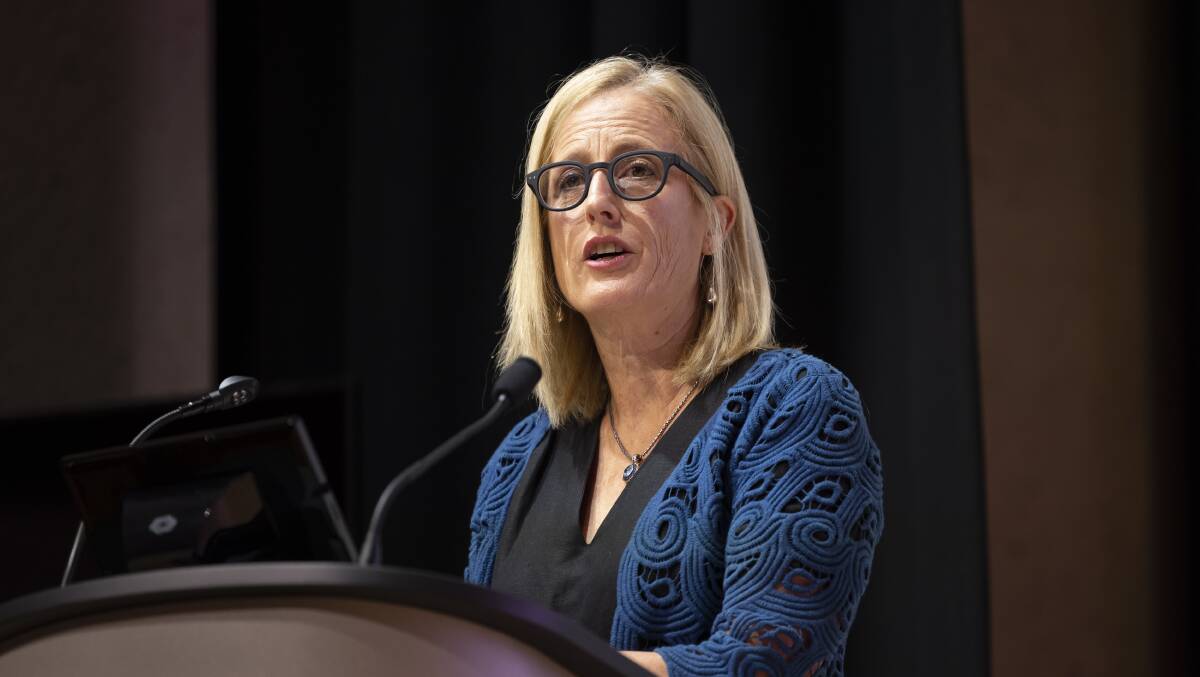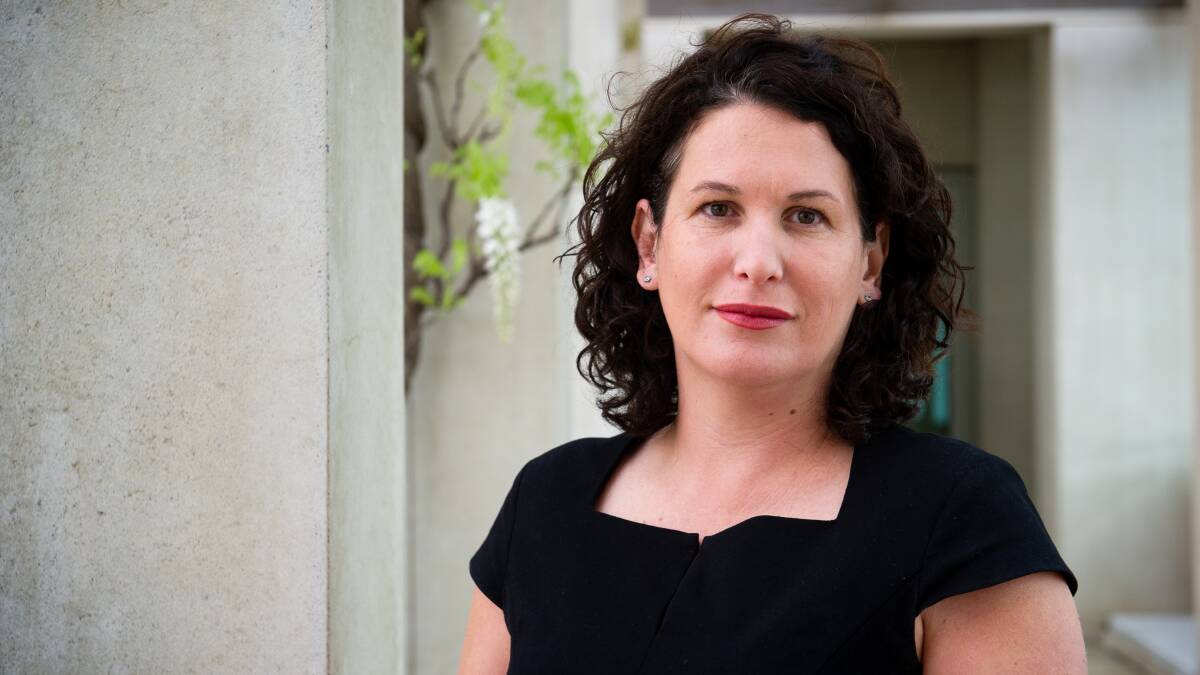
Katy Gallagher has declared the opening union gambit in public service-wide bargaining as "impossible" due to building budget pressures, but stressed the Albanese government wants to bring in "reasonable, affordable" pay rises and deal with pay discrepancies.
Subscribe now for unlimited access.
or signup to continue reading
The Australian Public Service Commission on Friday kick-started sector-wide bargaining, outlining the common conditions it plans to discuss with representatives as a starting point for negotiations. The proposed conditions include common pay increases, employment types and casual conversion, leave entitlements and flexible working arrangements.
The Community and Public Sector Union is pursuing an initial pay bump of 9 per cent in the first year of a new sector-wide agreement, 6 per cent in year two and 5 per cent in year three, plus a cost-of-living adjustment payment. It's also asking for a pay equity mechanism to lift the lowest-paid employees where the CPI is higher than the pay increase.
That's a bridge too far for the Minister for the Public Service, who is also the Finance Minister now working with Treasurer Jim Chalmers on difficult final budget decisions.
"I guess we go in with both eyes open on this. It'd be impossible to deliver that, I think, in terms of the budget pressures that we're facing, but we do want reasonable, affordable pay rises, and we do want to deal with some of the pay discrepancies," Senator Gallagher told The Canberra Times.
Revealing the ambitious claim for a minimum 9 per cent pay rise as part of the agreement's first year, CPSU national secretary Melissa Donnelly warned the government it must give a real pay rise to public servants or risk losing talent and contributing to national wage stagnation.
She also warned continuing pay inequity allowed financial discrimination to exist in Australia.
"You either choose to become a model employer, or you don't," Ms Donnelly said on Friday.

The minister said the government would try to do its best to get through sector-wide bargaining without too much conflict, but she expected there would be some.
"We're coming from different standpoints, I guess, but hopefully we can meet in the middle," Senator Gallagher said.
Workplace Relations Bargaining Taskforce within the APSC said it had been developing an approach to APS bargaining that was "fair, consultative and employee-focused".
Senator Gallagher said the Albanese government had a commitment to be a model employer and a pledge to instate fairer pay and conditions across the public service.
"When you look at some of the lower-paid agencies, there's a big gap between them and the top agencies now for doing the same level of work," she said.
"That's happened because no one's had an interest in bargaining for quite some time now, and we want to fix that. But look, I think pay will be the pointy end of the discussion, is my expectation, but we'll work through that with the CPSU."
READ MORE:
Formal public service-wide bargaining will begin before the end of March, deputy commissioner Peter Riordan expecting the process to be completed by the end of July.
"We gave a one-off pay increase for 12 months so that we could start doing this work to get it into shape," he said.
"So that would take us up to the sort of third quarter of this year, so it would be great to land by then."
Send us a letter to the editor
- Letters to the editor should be kept to 250 or fewer words. To the Point letters should not exceed 50 words. Reference to The Canberra Times reports should include a date and page number. Provide a phone number and address (only your suburb will be published). Responsibility for election comment is taken by John-Paul Moloney of 121 Marcus Clarke Street, Canberra. Published by Federal Capital Press of Australia Pty Ltd.


